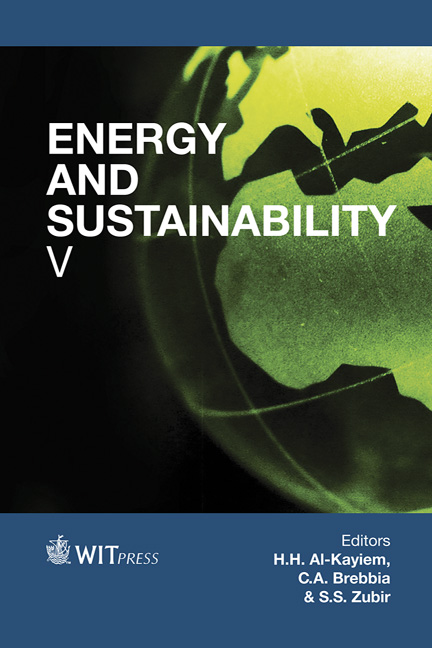Qualitative Risk Management Framework To Evaluate Environmental Risk Events In Infrastructure Projects In Developing Countries
Price
Free (open access)
Transaction
Volume
186
Pages
13
Page Range
299 - 311
Published
2015
Size
627 kb
Paper DOI
10.2495/ESUS140261
Copyright
WIT Press
Author(s)
A. M. Aboushady, S. A. R. El-Sawy
Abstract
This paper presents a Qualitative Risk Analysis Framework to identify and prioritize environmental risks encountered in infrastructure projects, which is applied to developing countries. The framework incorporates consensus and quality of experts in the process of evaluating environmental risk events and is composed of (1) Fuzzy Expert System (FES) to determine attributes of experts; (2) Fuzzy Similarity Aggregation Algorithms to aggregate experts’ opinions; and (3) three-dimensional prioritization approach to rank the risks, qualitatively. The FES determines an importance weight factor for each expert, based on a set of predetermined qualification attributes. Experts’ opinions are aggregated in a linguistic framework, based on the proximity of their opinions on the scale to ensure that their aggregated decision is a result of common agreement. The importance weight factor is combined with the consensus weight factor of each expert in the aggregation process using a scalar modifier and the Euclidean Distance Measure Function is used to determine the linguistic criticality of every environmental risk event. A three-dimensional prioritization approach applies a set of ranking rules to every risk that enables experts to rank and visualize the priority of the risks in a three-dimensional space. The framework contributes to the Construction industry by solving a major problem for project teams in developing countries to qualitatively evaluate environmental risks in a fully supported linguistic framework, using fuzzy logic, which addresses the vagueness and imprecision that exist in the decision-making process. It provides animprovement over other fuzzy qualitative-based models, using FES, instead of relying on an arbitrary assessment of experts’ qualifications in aggregating their opinions.
Keywords
fuzzy sets, Fuzzy Expert System, qualitative-based models, risk management





